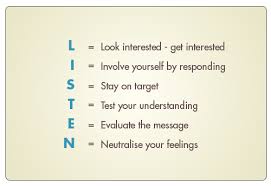Like a pin dropping onto a busy airport runway, your child’s heart cry may be difficult to hear. That “pin drop” is important, but almost inaudible compared to the loud noises and distractions in life.
As a parent of three children, I have perfected the art of tuning out the emergency demands and never-ending jabberings. In fact, I’m so used to being able to tune them out, that it has become increasingly difficult for me to tune them in.
 I’ve never agreed to the plea for a dog because I just don’t think I can handle barking added into the mix of loud television shows, instruments, music, phone calls and other things I have learned to tune out. There are many times when I’m alone driving in my car and truly relish the silence of no noise. But in the spirit of honesty, I’ll be the first to admit I desperately wish I could hear what my children are really saying.
I’ve never agreed to the plea for a dog because I just don’t think I can handle barking added into the mix of loud television shows, instruments, music, phone calls and other things I have learned to tune out. There are many times when I’m alone driving in my car and truly relish the silence of no noise. But in the spirit of honesty, I’ll be the first to admit I desperately wish I could hear what my children are really saying.
NOISE can be distracting. What do our children’s words + our children’s actions mean? How do you make sense of this equation?
 The solution = listening. Step 2 processing what you’ve heard. Step 3 understanding what you’ve processed. This is basic human interaction regardless of age or gender. It can be one of the most difficult tasks for parents when trying to understand their child.
The solution = listening. Step 2 processing what you’ve heard. Step 3 understanding what you’ve processed. This is basic human interaction regardless of age or gender. It can be one of the most difficult tasks for parents when trying to understand their child.
Listening is a skill that is acquired with effort. Some adults take classes from trained professionals to perfect this skill. Most adults find listening to be one of the most difficult skills to learn.
Here is an article focused on listening to your child. This was surprisingly difficult to find since most articles focus on how to make your child listen to you. Hmmmm.
 Does this mean that we need to listen when our child tells us all about the events of their entire day leaving out no details, or all about their favorite dinosaur, or why they love Doc McStuffins?
Does this mean that we need to listen when our child tells us all about the events of their entire day leaving out no details, or all about their favorite dinosaur, or why they love Doc McStuffins?
YES. We as parents will learn valuable clues into our child’s thinking patterns and psychology from these rambling stories.
 The most important thing your children learn from you listening to them, is that they feel that you care about them. If they feel that you care about them by listening to them, they are more likely to listen to you. Maybe this simple concept will help increase the probability that someday our children will grow up to be great listeners.
The most important thing your children learn from you listening to them, is that they feel that you care about them. If they feel that you care about them by listening to them, they are more likely to listen to you. Maybe this simple concept will help increase the probability that someday our children will grow up to be great listeners.


